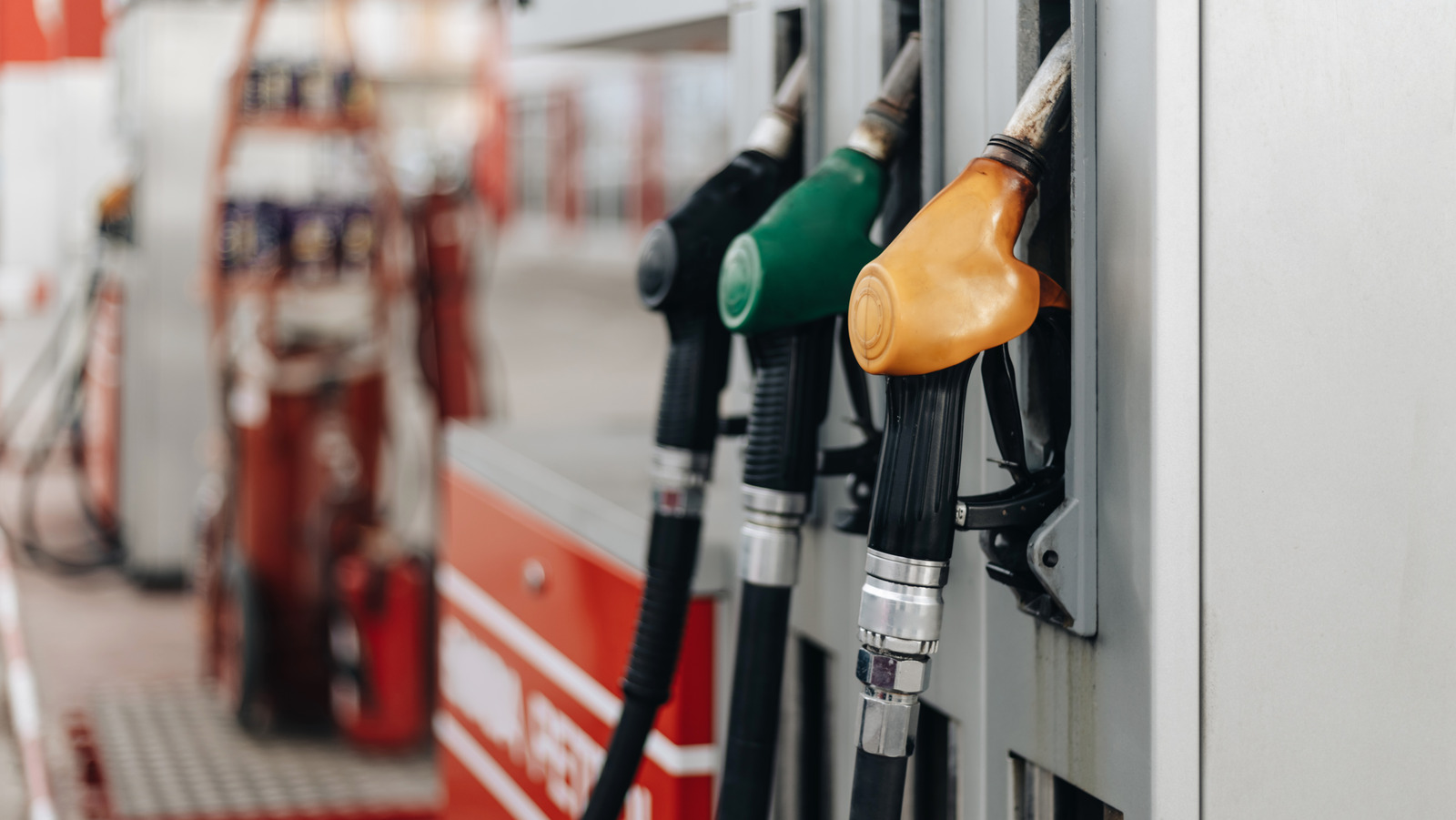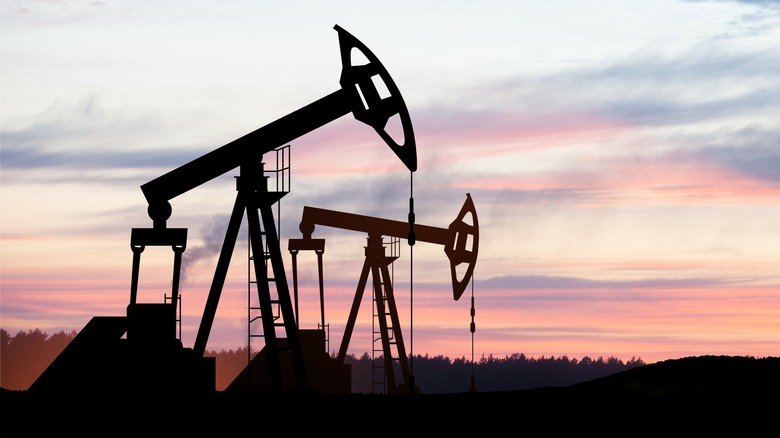
When weighing up an expensive new purchase, it’s important to consider every facet of the issue. With vehicles, for instance, it’s not just about the heavy initial outlay, but running and maintenance costs too. For instance, a model with a heftier sticker price may cost you less overtime if it’s cheaper to refuel. Unfortunately for diesel drivers, this doesn’t tend to be the case.
As we reported in our comprehensive comparison of diesel versus gas engines, the former variety is typically a powerhouse reserved for heavy-duty work, due to its high torque and power coupled with the sheer efficiency of the engine. A significant downside of diesel, however, is that it is often more expensive. On July 22, 2024, Statista reported, the average price of a gallon of diesel across the United States was $3.83, while regular gasoline stood at a significantly lower $3.5 per gallon. For particularly hungry and hefty diesel engines, then, the result can be a very significant price disparity.
What many drivers will want to know, then, is why is there such a difference? Let’s take a look at the fundamental differences between diesel and petrol, and how they can translate to such a difference in the price of filling that precious tank. As well as this, we’ll see that diesel used to be the cheaper option per gallon, and what happened to cause this dramatic shift.
Regular gas versus diesel
Diesel can do so much harm if it’s put into a gas engine, and vice versa, because the two types of fuel are adapted to work with entirely different types of engines. Diesel engines work through hot compressed air reaction with the fuel, while a gas engine utilizes spark plugs to initiate the same result: a series of small explosions that propel the vehicle forward.
As they’re used in such different ways within our vehicles, the process of refining diesel and gas is distinctly different too. There are more pollutants in diesel than in gas, which is potentially problematic when considering that, as the United States Environmental Protection Agency puts it, “Diesel is the predominant fuel used for shipping goods and moving freight across the country and around the world.” It was necessary, then, to introduce a variety of diesel that was less harmful to the environment. This resulted in the formulation of ULSD, or ultra-low sulfur diesel.
Naturally, the downside of this variety of diesel is that the process of reducing the sulfur requires a more intensive refinement process. Distillate Desulfurization Units can be used in the process to heat the diesel, before pressurization with hydrogen gas causes bonding with the sulfur (the result of which is drawn away in a splitter). The complexity of the refinement process is one contributor to the increased price of diesel, along with the price of such equipment and the demand for lower-sulfur diesel increasing.
Diesel used to be cheaper than gas, but the market shifted
The pursuit of less environmentally harmful options is one factor that has contributed to the disparity between the prices of gas and diesel, but the interesting thing is that diesel used to be the cheaper of the two options overall. What’s the reason for this reversal in fortunes? The U.S. Energy Administration notes that taxation also plays a significant part, with the excise rate for diesel standing at 24.9 cents compared to 24.3 cents per gallon of gas. This factor, in tandem with high global demand for diesel, resulted in this fuel becoming the more expensive of the two, and it has typically remained so for some time.
In the United Kingdom, for instance, July 2015 saw a supermarket reduction in the price of diesel, dipping below its gas (unleaded) equivalent. Simon Williams of the RAC responded, according to the Independent, “RAC Fuel Watch records show diesel was last cheaper than petrol 15 years ago on 17 July 2001.” In the U.K. generally, What Car reported in February 2024, a liter of diesel is an average of 22 pence (around 28 cents) more expensive than its petrol equivalent.
Diesel, then, has been cheaper than its counterpart, and can and has dipped below its price still. Supply and demand, along with market volatility, however, affects this. By and large, though, diesel is often more expensive because the process of creating it is rather more complicated and expensive.











